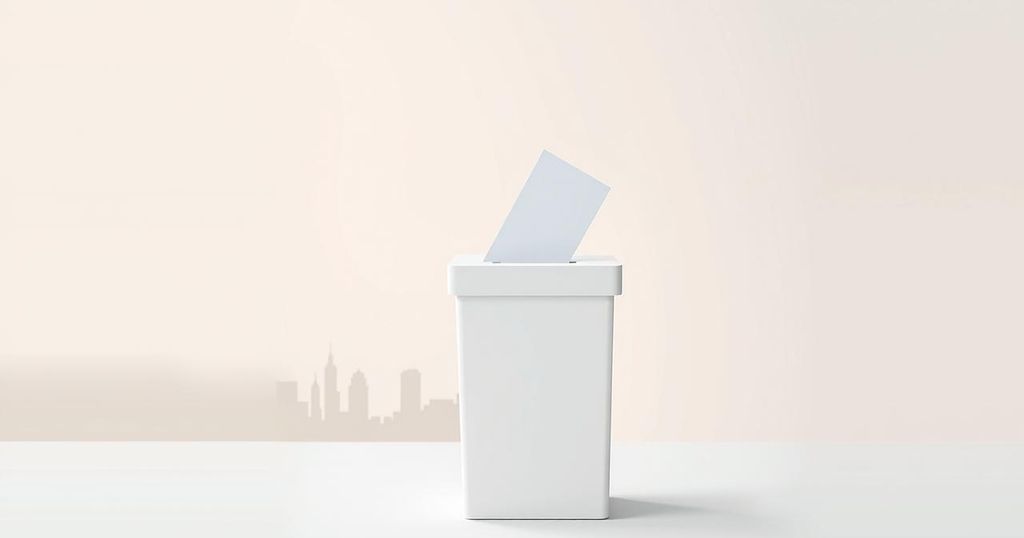German Elections Present Major Test for Sahra Wagenknecht and the BSW

The Sahra Wagenknecht Alliance (BSW) prepares for its inaugural federal election in February 2025, having previously shown strong support in eastern Germany. However, concerns about not meeting the 5% threshold loom due to weaker backing in the west. At its party conference, Wagenknecht criticized media coverage despite being frequently featured on major news outlets while asserting that the party is still in its early stages of campaigning. The BSW positions itself as a “peace party” focusing on anti-military spending and migration issues, but parallels with far-right rhetoric raise questions about its susceptibility to attracting a broad voter base.
Last weekend, the Sahra Wagenknecht Alliance (BSW) held a significant party conference in Bonn, marking its participation in the upcoming federal elections in February for the first time. Founded in January 2024, the BSW demonstrated considerable success in the recent elections in eastern Germany, securing 12%-16% of the votes, which outperformed the socialist Left party from which many of its members are drawn.
Despite these early achievements, Wagenknecht expressed concerns regarding the party’s ability to surpass the critical 5% threshold in the imminent Bundestag elections. Approximately 10 million of Germany’s 59 million eligible voters reside in the east, limiting the party’s potential support, especially in the west where it struggles to gain traction.
The BSW’s performance in the June European elections, where it garnered 6.2% of the vote, reflected stark regional differences, with higher support in eastern states compared to the less than 5% average in the west. Current opinion polls for the upcoming Bundestag elections show the BSW on the cusp of qualifying for parliament, emphasizing the need for solid performances.
At the Bonn conference, Wagenknecht criticized the media for contributing to the party’s low polling figures, stating, “I think it’s pretty undemocratic.” However, public appearances revealed that she was the most featured politician in major broadcast channels throughout 2024, suggesting coverage may not be the primary issue.
Wagenknecht portrayed the BSW as a nascent party striving to cultivate a core constituency, citing a lack of voter recognition as a challenge. She remains optimistic about the party’s campaigning efforts, highlighting that the recently adopted platform will enhance their campaign foundation.
In its new manifesto, the BSW positions itself as the only “peace party” in Germany, emphasizing its vehement opposition to military escalations and arms supplies to conflict zones. This stance, however, contrasts with the Left Party, which has historically promoted similar views but diverged from BSW on asylum and migration policies.
The BSW’s proposals on migration echo tough rhetoric akin to that of the Alternative for Germany (AfD), with claims of increased violence linked to immigration. The party’s manifesto advocates for stricter asylum measures and the deportation of criminal refugees, indicating a significant shift from previous socialist viewpoints.
Regarding the war in Ukraine, the BSW calls for an immediate ceasefire and cautions against an arms race, promoting diplomacy instead. Wagenknecht articulates, “We must not prepare for war in the nuclear age.”
On the subject of the Middle East crisis, the BSW condemned Israel’s military actions following Hamas’s attack, describing the situation as a humanitarian crisis exacerbated by excessive military responses. The manifesto also disputes the narrative regarding Germany’s military budget, asserting that military spending has significantly increased since 2014.
As the BSW embarks on its electoral endeavor, it faces a critical juncture: either securing a place in the Bundestag or facing personal defeat for its founder. The Left Party, meanwhile, retains the potential to enter parliament through direct constituency victories, complicating the electoral landscape.
In concluding the party conference, Wagenknecht rallied the delegate members to enter the campaign with enthusiasm, declaring a need for collective effort to achieve election success on February 23, “for we will make February 23 a huge success!”
The Sahra Wagenknecht Alliance (BSW) is a relatively new political party in Germany, established in January 2024 by Sahra Wagenknecht, a former member of the socialist Left Party. The BSW aims to appeal to voters disillusioned with traditional leftist policies, particularly on issues of migration and military stance. The party faces significant challenges as it seeks to establish itself amidst a competitive political landscape, particularly in the context of regional disparities in support between eastern and western Germany, which influence its electoral viability.
In summary, the BSW’s upcoming electoral participation poses both opportunities and challenges. While it has shown promise in early elections, the party’s ability to cross the 5% threshold remains uncertain, especially in western Germany. Sahra Wagenknecht’s leadership and the party’s distinct positions on peace and migration could either attract voters or alienate them, making their success in the February elections critical for future prospects and for Wagenknecht herself.
Original Source: www.dw.com








